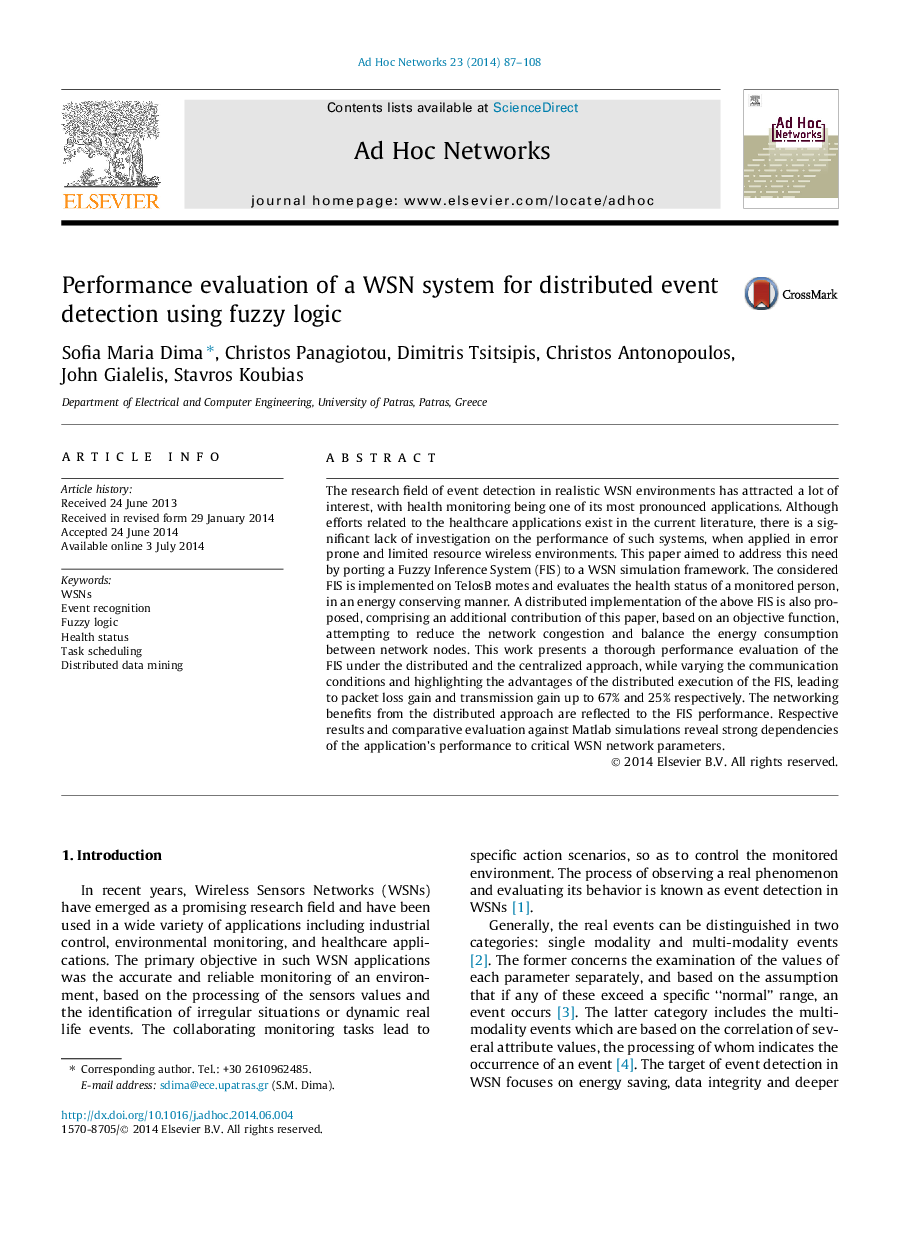| Article ID | Journal | Published Year | Pages | File Type |
|---|---|---|---|---|
| 447947 | Ad Hoc Networks | 2014 | 22 Pages |
The research field of event detection in realistic WSN environments has attracted a lot of interest, with health monitoring being one of its most pronounced applications. Although efforts related to the healthcare applications exist in the current literature, there is a significant lack of investigation on the performance of such systems, when applied in error prone and limited resource wireless environments. This paper aimed to address this need by porting a Fuzzy Inference System (FIS) to a WSN simulation framework. The considered FIS is implemented on TelosB motes and evaluates the health status of a monitored person, in an energy conserving manner. A distributed implementation of the above FIS is also proposed, comprising an additional contribution of this paper, based on an objective function, attempting to reduce the network congestion and balance the energy consumption between network nodes. This work presents a thorough performance evaluation of the FIS under the distributed and the centralized approach, while varying the communication conditions and highlighting the advantages of the distributed execution of the FIS, leading to packet loss gain and transmission gain up to 67% and 25% respectively. The networking benefits from the distributed approach are reflected to the FIS performance. Respective results and comparative evaluation against Matlab simulations reveal strong dependencies of the application’s performance to critical WSN network parameters.
